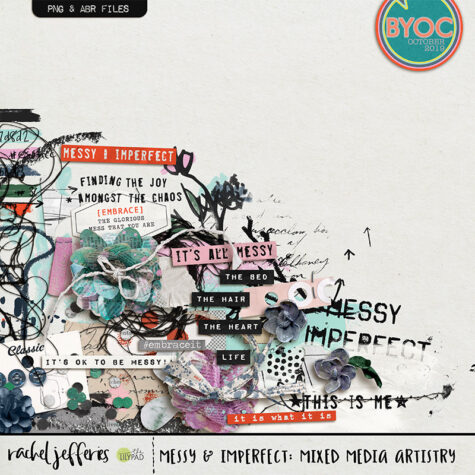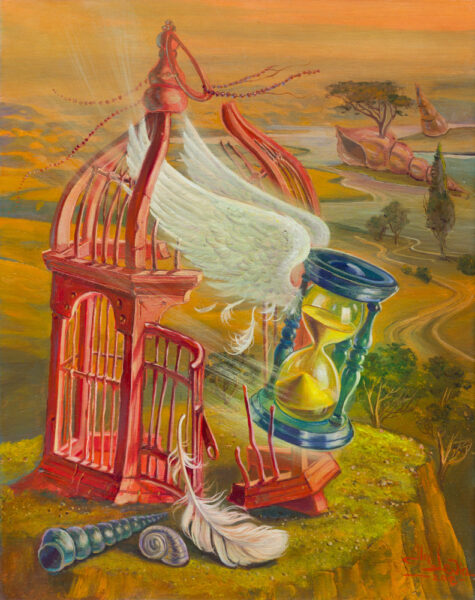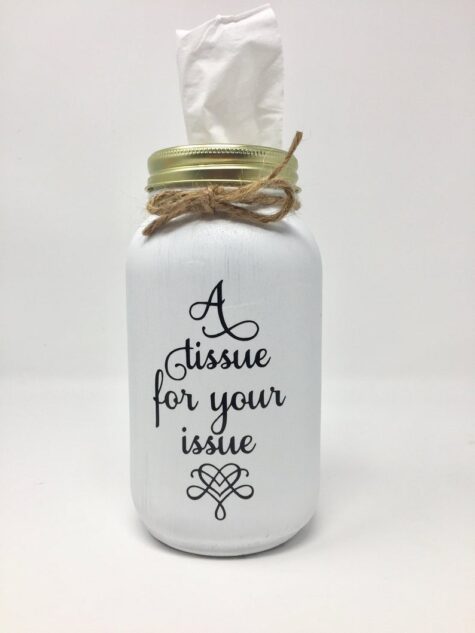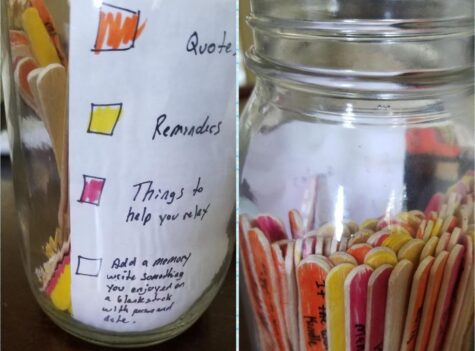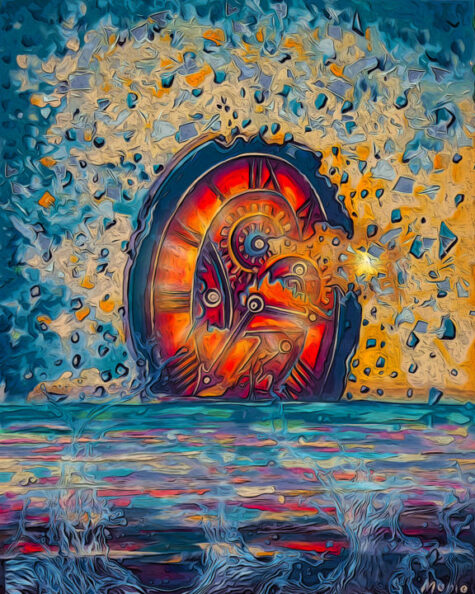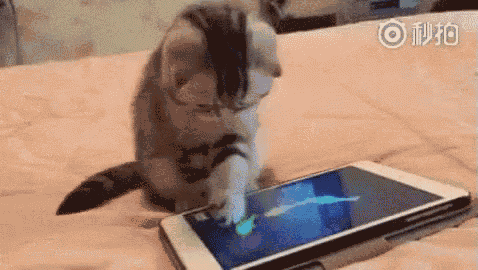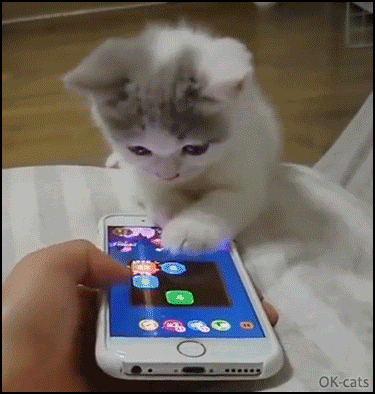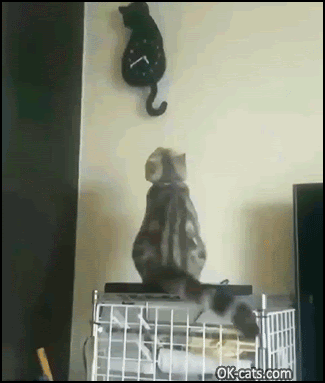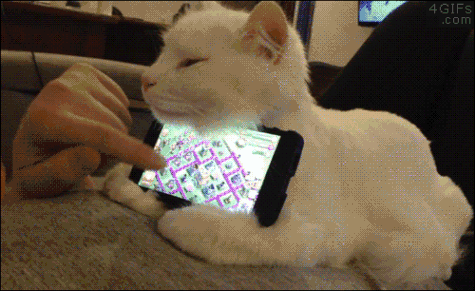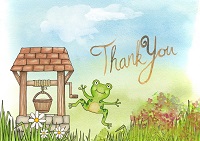Messy and Imperfect
Less Than Perfect Art
While researching our current theme of imperfection, I stumbled into an online exhibition called “Less Than Perfect.” I’ve decided to share their thoughts in three separate posts. I’d love to hear your thoughts and ideas!
- How do you define perfection?
- How can we learn from failures?
Less Than Perfect explores these questions and asks how people in diverse times, places, and cultures have answered them.
The objects exhibited here span four continents and more than 2000 years. They come from three University of Michigan museums: the Kelsey Museum, the Museum of Art, and the Museum of Anthropological Archaeology. Each has the potential to tell many stories: of how, where, and when it was made; how it was used, discarded, repaired, or valued; and how it came to a particular university museum in Ann Arbor.
Drawing from among these stories, the exhibition is organized around three themes:
- Failed Perfection presents objects that failed in production and explores how researchers use them to study ancient economy and technologies.
- Deliberate Imperfection features beautiful and finely crafted objects whose makers purposely introduced asymmetries or other unexpected elements into their products—and considers why artists may choose to make imperfect things.
- Repairing Perfection highlights artifacts that were repaired in antiquity and asks why and how individuals worked to restore usefulness and beauty to certain broken, worn out, or damaged objects.
Taken together, these themes invite us to ponder our own perspectives and encounters with perfection, imperfection, and failure and consider how people in other times and places have responded to these shared human experiences.
Less Than Perfect
While researching for this project, I came across the lyrics to the song, “Less Than Perfect.” These are my favorite parts. It feels good, I think, to know I am not alone in my failure to be perfect.
Welcome to my silly life
Mistreated, misplaced, misunderstood
Miss knowing it’s all good
It didn’t slow me down
Mistaken
Always second guessing, Underestimated
Look, I’m still around…
You’re so mean
When you talk about yourself
You were wrong
Change the voices
In your head
Make them like you instead…
… we try try try
But we try too hard and it’s a waste of my time
Done looking for the critics, cause they’re everywhere
They don’t like my jeans, they don’t get my hair
Exchange ourselves, and we do it all the time
Why do we do that?
Why do we do that?
Don’t you ever ever feel
Like you’re less,
Less then perfect…
Like you’re nothing…
You’re perfect to me!
And after a little more searching I found this video, It has the song and lyrics. Enjoy!
Ideas To Lighten The Mood
When we explored Altschmerz, it occurred to me that I might really benefit from a specific time limit, or regularly scheduled space in my daily routine for either dealing with, or reliving the thoughts and feelings that put me in a funk, or ruin what might possibly have been a really nice day.
What I came up with is a number of fun little arts and crafts ideas that can be as basic and simple or as elaborate and complicated as you’d like them to be. It seems smart to start with simple and then embellish as time goes by, but I know myself pretty well, and I fully expect I’ll go full out elaborately complicated.
- Happy Memories
Ok, so here’s what I was thinking. Instead of torturing myself with the sad, bad, or otherwise unhappy moments in the past, I thought it might be fun and useful to spend a few minutes each day thinking about the best days, fun times, happy memories or experiences. And then, taking it one step further and writing it down.
Sylvia Hartman suggests a Star Memories journal, where you have a simple journal, and then just jot down your best memories, the date, your age, and anything else about that experience that you’d want to share. I like this idea.
It might also be fun to have a box. It doesn’t have to be an awesome and amazing box. Something as simple as a shoe box would work just fine. And then just jot down memories that cheer you up or make you smile and toss them in. Maybe pictures, mementos, little stuff could also go in. If you are cleaning house, or decluttering your car, and find a little something that makes you smile, it could go in the box too.
On the days when nothing is happy or fun, you could open the box and spend a little time reliving those little moments. And, on days when you feel up to it, you could spend some time adding to your memory box.. or decorating it.
What I really like about this idea is that at some point, when your time is up, and you have left this life – there will be a box of happy memories that your family and friends might find comfort in.
- Write About It
Some days, I need (or want) to just wallow in my “stuff.” And I am pretty sure that those are the days that the “Happy Memories” box will stay on the shelf, unopened.
For those days, I thought it might be helpful to simply acknowledge whatever it is that I’m in a funk about. I thought it might look like this:
I am ______ (pinpoint the feeling)
And I must really like feeling this way
Because if I didn’t, I would __________ (write the first thing that comes to mind)
And/or _________ (write the next thing that comes to mind)
So, it must be useful to me in some way
And I might as well spend the next ______ minutes enjoying it.
For me, today, it went like this:
I am feeling really tired and overwhelmed. I must really like feeling this way because if I didn’t, I would do something about it, and maybe get more sleep, go outside and get some fresh air, or even begin to implement a plan to cope with it. So, it must be useful to me in some way and I might as well spend the next 10 minutes enjoying it.
And I did spend about 10 minutes wallowing in the feeling, and then I actually got up and went outside and got some fresh air. Amazingly, it felt really good and helped a lot.
I didn’t want to forget this little exercise, and I thought it might be helpful if I had some little booklets all made up in advance. This video shows how to make little emoji booklets out of one sheet of paper with no glue… I’m going to make several when I finish with this post.
You will end up with 8 little pages. Some of the pages are doubled or even tripled, which bothered me a little bit, and I solved it by cutting the bottom edges of the bulkiest ones and then using scotch tape to bind up the middle parts where the booklet kind of separated.
My method gave me enough pages to do it like this:
- I am feeling:
- (leave blank to write on)
- I must really like
- Feeling like this
- Because
- If I didn’t
- I would:
- (leave blank to write on)
- and/or:
- (leave blank to write on)
- So it must be useful to me
- And I might as well
- Spend ______ minutes
- Enjoying it.
If you love your little booklets and want them to be really cute, you could use washi tape to secure the middles and around the sides. The double sided ones could even be left open at the top or on the side to give you a little pocket for… I dunno what… but something fun?
This has the added bonus of being wonderfully distracting! I love arts and crafts solutions to emotional issues. Plus you can take one or two of them with you in case you need to use it at work… when waiting for an appointment… or while visiting relatives.
- Blow It Off
Here’s another fun idea. It looks really really easy, and doesn’t require a lot of materials. Plus you have the added bonus of simply using a regular box of tissues and decorating it (if you want to). My vision for this is to pull out a tissue and blow your angst, anxiety, issues… whatever it is that’s bothering you… into it. Really get it all blown out of your head and into the tissue.
And then flush the tissue with a wave good-by and a squirt of room sanitizer, a spritzer of aromatherapy fragrance… whatever you have that you think will clear the room. Some days it might take several tissues to get it all out. Other days, you might not even need it.
There are a lot of tutorials online about how to make these. You can also buy them ready made on Etsy. Or you can keep it simple and just decorate a box of tissues.
If you want to make one out of a jar, it’s pretty easy:
Start with a mason jar, take the lid off and decorate the jar with paint, fabric, or whatever you like. The round middle part of the lid can be replaced with either felt or cardboard. Or even the top of the tissue box if the opening is small enough. Simply use the middle lid to cut the right size circle from the felt or cardboard. Make an opening to pull the tissues through. Decorate the top of the lid however you want, and voila!
Most of the tutorials call for a mason jar because the lid is easy to alter. You can use any wide mouth jar, even a plastic peanut butter jar, the only draw back is that the plastic lid will have to be cut for the tissues to pull through.
- Put It On A Stick
This is a cute and fun little all purpose idea that requires either popsicle sticks or strips of colored cardstock. When I was a kid, my parents had a little set of bible verses on strips of cardstock that they kept in a container on the dining room table. Every morning we would pick one and read it aloud, and that would be our spiritual theme for the day.
This idea is similar. What you would do is spend some time making the different bits for it. It can be approached as a work in progress. When you find yourself spiraling down the rabbit hole, you could pull this out and add to it. If you’re already too far gone, you can pull something out of your jar and maybe it will help.
This would also make for a great group project. Get everyone in the family involved on a lazy Sunday afternoon, or get together with friends and help each other think of stuff to write down.
I find that the simple process of making something like this acts as a huge mood booster. It’s wonderfully distracting, feels productive and useful, and if you give it something cute to live in, you can keep it out and have it ready for those times when you really might need it.
- Count Your Blessings
This can take any form. You can think about and list your good qualities and loveable attributes. You can list all the things that you have that make your life easier and more comfortable. You can use it as a gratitude journal, box, jar…
Alternatively, if this sort of thing works for you, you can fill your container or your book with affirmations, uplifting thoughts, and positive images.
I like the idea of using a bottle or a box over a journal simply because I have so many unfinished journals. However, I have been exploring Junk Journal making. It’s a really ambitious and complicated idea, but maybe i will make more than one. If I do, it might be fun to create a blessing / gratitude / positive thoughts journal. I’m really intrigued with the idea of a tiny one. Here’s a link to one of the tutorials that got me inspired.
A New Day
Exploring Altschmerz
Today I thought we could explore Altschmerz. Altschmerz is a compound noun made from the words alt (old) and Schmerz (pain). It therefore translates to ‘old pain’. What does it mean?
Weariness with the same old issues that you’ve always had—the same boring flaws and anxieties you’ve been gnawing on for years, which leaves them soggy and tasteless and inert, with nothing interesting left to think about, nothing left to do but spit them out and wander off to the backyard, ready to dig up some fresher pain you might have buried long ago.
We’ve all done this. Some of us more than others. I am an expert in Altschmerz. What about you? How familiar are you with old pain? I’m sure we all experience this differently, for me, it generally takes the form of regret and self-recrimination. What about you?
We already know that What You Focus On Grows, so this can’t be a good place to spend our precious time.
Is there a solution?
If you search Google, you’ll find a plethora of “just do this, this, and this” articles mostly rehashing the same stuff over and over. Here are some of the better ones. Some of them focus on rumination, which is obsessive worrying and overthinking, which I think it fits in fairly well with Altschmerz.
- Establish a time limit!
If you find yourself in a funk, or in an obsessive worry, regret, or negativity loop, set a timer. Give yourself a set amount of time and really go for the gold. When the timer goes off. Get up. Wash your face. Get dressed. And do something completely different, change your environment, change the channel, change something.
I love this idea. I think I’m going to schedule some worry, guilt, anxiety, regret and general angst time. Make it a part of my daily routine. It will need to be sandwiched in between activities that require me to be functional and present, and/or my favorite fun distractions so that I can easily pull myself out if I get in too deep.
- Use it to make your life better.
Let’s imagine you received a considerable electricity bill a week ago. You paid the bill, but you suddenly start thinking about it, and you feel more and more upset and stressed. The first step to turn this into something meaningful is to notice what you’re doing. This can be as simple as, “I’ve just started having anxiety about the huge electricity bill.”
Identify the reasons why you’re worrying. For example, “I’m worrying over the electricity bill because I’m on a tight budget, I’m frustrated I have to spend so much money at once, and I’m disappointed because I should have been more careful about using electricity.”
Choose some meaningful changes you could make in your life. You might decide to take shorter showers and wear extra layers of clothing, rather than always turning on the heater. You might open the blinds earlier to make the most of the natural light, rather than turning artificial lights on. All of these changes can help reduce your electricity bill next time.
Take action. Once you have some action steps, do your best to follow through. Write down helpful reminders, set timers, find an accountability buddy — anything that will help you implement the meaningful changes you chose in the previous step.
By identifying helpful changes and implementing them into your life, you’ll train yourself to learn from past mistakes, rather than just “beating yourself up” about them.
- Practice mindfulness
Mindfulness is the practice of being present in the moment with an attitude of open-mindedness and curiosity.
For example, you might take a shower, and rather than thinking about the mistakes you’ve made over the last weeks, months, and years, you could practice mindfulness. You might feel the water falling onto your skin. When you close your eyes, you listen to the different sounds you can hear. You notice areas of warmth and coolness in your body. Whenever you catch your mind wandering to the past or future, you re-focus on the moment.
A study in 2019 found that participants who practiced mindfulness were less likely to experience depression. The study author said, “Ruminators tend to latch onto a negative emotion and repeatedly mull it over in their mind, whereas mindfulness teaches us not to become entangled with our negative emotions.”
Next time you notice yourself obsessing about old pain, try a mindfulness practice like mindful breathing or mindful listening.
- Cultivate your confidence.
Low self-esteem has been linked to increased rumination. When you regularly focus on the past and negative events, you might start to feel like you’re not good enough. You might see your mistakes more than your achievements. Rather than finding ways to learn and grow, you might become caught up in thoughts about what “should” have happened differently. Feelings of shame, disappointment, frustration, and unfairness might grow stronger. So it’s not a huge surprise that your self-esteem can take a hit.
However, if you focus on cultivating your confidence, you might reduce your tendency to focus on the negatives. At the end of each day, write down a list of things you’ve done well. Know and pay attention to your best qualities. Smile at yourself often. Before you leave the house in the mornings, tell yourself how awesome you are. Because you are awesome! This is actually true.
- Talk about your thoughts.
Sometimes, an effective way to release persistent or upsetting thoughts is to talk about them. Go out for coffee with a supportive friend or family member and tell them what’s been on your mind. Invite your fears or failures into the open, where they often become less distressing.
If you don’t feel comfortable talking about persistent or upsetting thoughts with the people close to you, perhaps you’d prefer talking a licensed mental health professional. And if that’s not an option, tell your dog, your cat, or even the moon. Sometimes speaking those thoughts aloud allows them to be released.
- Use distractions.
Interrupt persistent thoughts about the past by engaging in useful distractions. Listen to a playlist of your favorite uplifting songs. Call a friend and ask them about their day. Go for a run. Declutter and tidy your home. Do something creative, like mindful coloring, gardening, or playing music.
Try to avoid mindless distractions that don’t add value to your life, and find constructive distractions that boost your emotional, physical, or social wellbeing.
Time Lords
So far we’ve talked a lot about time, and how we might possibly be frittering it away even though we don’t have all that much of it. Serious stuff! So let’s finish up all this serious talk, with something fun!
It’s a Time Lord Name Generator. How fun is that?
My Time Lord Name is: The Poet AKA Dundrollbygotheneeldri
You are known as The Poet. Your original Gallifreyan name is Dundrollbygotheneeldri or Dundroll for short.
Back on Gallifrey, you led a dull and uninteresting life, working as a Deputy Assistant to the Assistant Deputy at the Prydon Academy – but now, you travel Time and Space in search of adventure!
Your Type 66 TARDIS is currently stuck in disguise as a Sherman tank, and your latest travelling companion is a gritty, cynical newspaper journalist from the 1990s, who discovers the universe is weirder and wilder than he ever expected.
I like it! The next time I start to worry about time and now there’s not enough of it, whenever I realize that I am wasting time, or allowing corporate America to steal my time… I’m going to remember that in some alternate reality, I have a Type 66 Tardis and my Time Lord Name is Dundroll… This is going to make me smile and then I will be able to let all that worry go and just enjoy the moment even if that moment is boring or uncomfortable.
If you are a Dr Who fan, you’ll totally get this, if not…
Here’s an explanation:
The Time Lords were first created in 1969 by writers Malcolm Hulke and Terrance Dicks, in ‘The War Games’, Patrick Troughton’s final story as the Second Doctor. The Doctor’s home planet was first named as Gallifrey in 1973 in the story ‘The Time Warrior’, written by Robert Holmes.
Since then, the mythos of Gallifrey has expanded in a massive number of ways thanks to stories like The Deadly Assassin, ‘The Invasion of Time’, ‘Arc of Infinity’ and ‘The Trial of a Time Lord’, and we’ve tried to use as much detail from the classic shows and from various spin-off novels as possible in creating the Time Lord names.
The Biology of the Time Lords
Time Lords are the elite of the planet Gallifrey in the constellation of Kasterbouros, and they are super-intelligent beings who can live for thousands of years (although not all Gallifreyans are Time Lords). They appear human, but have many physiological differences – Time Lords have two hearts, an internal temperature of only 15 degrees Centigrade, and a respiratory bypass system that protects them from suffocation and strangulation.
They also have the power of regeneration, meaning they can completely transform their appearance and personality twelve times, although certain Time Lords have found ways of extending their lives and even acquiring new regeneration cycles.
The History of the Time Lords
The Time Lords jealously guarded the secrets of Time Engineering that were bequeathed to them by the legendary pioneers Omega and Rassilon, and for thousands of years they have kept to a strict rule of non-interference with other races, only observing the outside universe and never getting involved.
Secretly, organizations such as the Celestial Intervention Agency have been regularly breaking this rule, most notably in their attempt to persuade the Doctor to commit genocide by wiping out the Daleks before they were created, long held to be the opening strike of the cataclysmic Time War.
Time Lord Society
Much of Time Lord society is aloof and stagnant – power lies with the High Council, ruled by the Lord President and the principle colleges, where it only matters whether you are a member of the Prydonian, Arcalian or Patrexe chapters.
Bureaucracy and order rule the day, while many secrets are hidden away in the computer system known as the Matrix, where the combined intelligences of generations of deceased Time Lords can create a whole virtual universe of dreams and nightmares.
Gallifrey is a frustrating, dull place to live – so it’s no wonder that you’ve finally had enough and are stealing a TARDIS so that you can escape and travel the universe!
About Time Lord Names
Our Doctor Who inspired generator will not only give you a new identity as a renegade Time Lord, but you’ll also get your full Gallifreyan name (and its shortened version), what you used to do before you escaped your home planet for a life of adventure, the current disguise of your stolen TARDIS, and a companion to travel with you!
So how about it? Are you going to check out the Time Lord Name Generator? If you do, I’d really love to know your Time Lord Name!
Time Thieves
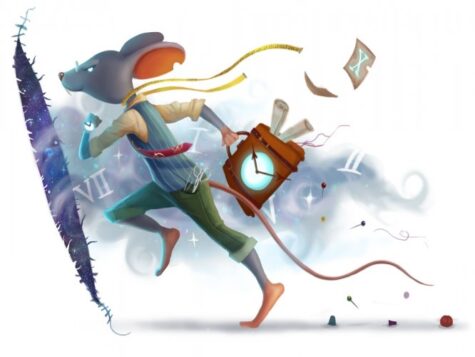 In our so-called ‘Age of Distraction’, it feels almost impossible to stop getting distracted. The world around us – and the usual suspects of our phones, emails, and other technologies – seem to be vying for our attention. And doing all in their power to stop us focusing.
In our so-called ‘Age of Distraction’, it feels almost impossible to stop getting distracted. The world around us – and the usual suspects of our phones, emails, and other technologies – seem to be vying for our attention. And doing all in their power to stop us focusing.
Just like a thief, time thieves are sneaky, secretive and take what is valuable to us without us knowing.
If we want to get our time, attention and energy back for the things we find important, we need to start by looking at our relationship with our phones. These are the biggest ‘Time Thieves’ around. Other Time Thieves might include one or more of the following:
- YouTube
- Social Media
- Television
- Video Games
For me, my phone with it’s various games, apps, and the ever present Facebook is the worst offender. This is closely followed by YouTube, google, and mindless television. What do your personal Time Thieves look like?
Making Time Thieves Work For Me
There are lots of articles all over the internet on how to deal with distractions, some are more useful than others. I’m not going to bore you with them here. Instead I’m going to talk about what has actually been working for me:
- Games On My Phone
There’s this silly little game on my phone called Township. I somehow got totally entangled in it to the point of ridiculousness. Then I had this brilliant idea that I couldn’t play it unless I was on my treadmill. Perfect! I haven’t missed a single day of exercise for 2 months.
- Mindless Television
At some point during the lockdown, I got hooked on Court TV… Really? Yes! I have no clue why I find it so interesting, but I really do enjoy watching the trials live. It has an added bonus of keeping me grounded in the here and now because it’s actual people, live in the moment. And what I’ve discovered is that it’s way easier for me to wash dishes, get the laundry put away, and do little household chores if I am also watching a trial unfold.
If Court TV doesn’t have anything going on that interests me, sometimes I can find other fun stuff like Storm Chasers, The Great British Baking Show, or documentary shows about natural disasters, plane crashes, ships that sank in a spectacular way. It takes the boredom out of the more tedious activities that nag at me to get done.
More recently, I’ve been using Facebook to help me get the Prosperity Project posts wrangled and uploaded. I made a deal with myself that I could stay off of Facebook all the way up to and until I get something finished and scheduled on the website.
When I had to go out to my car and scrape all the ice off the windshield and warm it up, I told myself that this would be a perfect time to scroll through Facebook. The whole ordeal of sitting in a cold car while it warmed up was made more palatable with the addition of checking out all the “new” stuff my “friends” were talking about.
- Arts and Crafts
It occurs to me that it’s possible that art is one of my favorite distractors. I don’t think it’s a Time Thief, but I do think that I use it to totally disappear from the here and now and slide into a whole other world. What’s great about it is that I can make a bunch of cool stuff to give away as gifts, or put online for sale as a way to make a little bit of extra cash. Plus it’s fun and rewarding, much better than scrolling through my news apps or sitting and staring at a stupid television show.
Knitting gives my hands something to do when I find myself snacking all night long. Munching on junk food isn’t necessarily a time thief, but it isn’t good for me either, and I find that knitting effectively interrupts my need to keep putting stuff in my mouth.
Now It’s Your Turn
What are your most familiar Time Thieves? When and where are you most bored and uncomfortable? How do you cope with it? What if you just sat with it and faced it? How can you use your personal Time Thieves to your advantage? What are your triggers? When are you most likely to let those Time Thieves in?
Getting Distracted
This is an edited extract from Four Thousand Weeks by Oliver Burkeman. It’s kind of long, and I did try to break it up into shorter, easier to read pieces. As you can see, I did not succeed. It’s a great article though, and well worth the time spent reading it. I’ve decorated it with some cute cat gifs because.. well… they’re distracting and fun which might help with the long read.
It hardly matters how committed you are to making the best use of your limited time if, day after day, your attention gets wrenched away by things you never intended to focus on.
Distraction truly matters – because your experience of being alive consists of nothing other than the sum of everything to which you pay attention. At the end of your life, looking back, whatever compelled your attention from moment to moment is simply what your life will have been. When you pay attention to something you don’t especially value, it’s not an exaggeration to say that you’re paying with your life.
This was why Seneca, in On The Shortness Of Life, came down so hard on his fellow Romans for pursuing political careers they didn’t really care about, holding elaborate banquets they didn’t especially enjoy, or just “baking their bodies in the sun”: they didn’t seem to realize that, in succumbing to such diversions, they were squandering the very stuff of existence.
Seneca risks sounding like an uptight pleasure-hater – what’s so bad about a bit of sunbathing? – and, to be honest, I suspect he probably was. But the crucial point isn’t that it’s wrong to choose to spend your time relaxing, whether at the beach or on BuzzFeed. It’s that the distracted person isn’t really choosing at all. Their attention has been commandeered by forces that don’t have their highest interests at heart.
All of which helps clarify what’s so alarming about the contemporary online “attention economy”, of which we’ve heard so much in recent years: it’s essentially a giant machine getting you to care about things you didn’t want to care about. And you have far too little control over your attention simply to decide, as if by fiat, that you’re not going to succumb to its temptations.
Social Media
Social media is engineered to constantly adapt to our interests. No wonder the rest of reality seems unable to compete.
Many of us are familiar with the basic contours of this situation. We know that the “free” social media platforms we use aren’t really free, because, as the saying goes, you’re not the customer but the product being sold. In other words, the technology companies’ profits come from seizing our attention, then selling it to advertisers.
You might also be aware that this is delivered by means of “persuasive design” – an umbrella term for an armory of psychological techniques borrowed directly from the designers of casino slot machines, for the express purpose of encouraging compulsive behavior.
One example among hundreds is the ubiquitous drag-down-to-refresh gesture, which keeps people scrolling by exploiting a phenomenon known as “variable rewards”: when you can’t predict whether or not refreshing the screen will bring new posts to read, the uncertainty makes you more likely to keep trying, again and again and again, just as you would on a slot machine.
What’s far less widely appreciated, though, is how deep the distraction goes, and how radically it undermines our efforts to spend our finite time as we’d like. As you surface from an hour inadvertently frittered away on Facebook, you’d be forgiven for assuming that the damage, in terms of wasted time, was limited to that single misspent hour.
But you’d be wrong. Because the attention economy is designed to prioritize whatever’s most compelling – instead of whatever’s most true, or most useful – it systematically distorts the picture of the world we carry in our heads at all times. It influences our sense of what matters, what kinds of threats we face, how venal our political opponents are – and all these distorted judgments then influence how we allocate our offline time as well.
If social media convinces you, for example, that violent crime is a far bigger problem in your city than it really is, you might find yourself walking the streets with unwarranted fear. If all you ever see of your ideological opponents online is their very worst behavior, you’re liable to assume that even family members who differ from you politically must be similarly, irredeemably bad, making relationships with them hard to maintain.
So it’s not simply that our devices distract us from more important matters. It’s that they change how we’re defining “important matters” in the first place. In the words of the philosopher Harry Frankfurt, they sabotage our capacity to “want what we want to want”.
I vividly recall walking alone along a windswept Scottish beach as dusk began to fall, when I experienced one particularly disturbing side-effect of persuasive design, which is the twitchiness you start to feel when the activity in which you’re engaged hasn’t been crafted by a team of professional psychologists hellbent on ensuring that your attention never wavers.
I love windswept Scottish beaches at dusk more passionately than anything I can ever remember encountering on social media. But only the latter is engineered to constantly adapt to my interests and push my psychological buttons, so as to keep my attention captive. No wonder the rest of reality sometimes seems unable to compete.
To make things more troublesome still, it can be difficult even to notice when your outlook on life is being changed in this depressing fashion, thanks to a special problem with attention, which is that it’s extremely difficult for it to monitor itself.
The only faculty you can use to see what’s happening to your attention is your attention, the very thing that’s already been commandeered. This means that once the attention economy has rendered you sufficiently distracted, or annoyed, or on edge, it becomes easy to assume that this is just what life these days feels like. In TS Eliot’s words, we are “distracted from distraction by distraction”.
The unsettling possibility is that if you’re convinced that none of this is a problem for you – that social media hasn’t turned you into an angrier, less empathic, more anxious or more numbed-out version of yourself – that might be because it has. Your finite time has been appropriated, without you realizing anything’s amiss.
As the technology critic Tristan Harris likes to say, each time you open a social media app, there are “a thousand people on the other side of the screen” paid to keep you there – and so it’s unrealistic to expect users to resist the assault on their time and attention by means of willpower alone.
Yet if we’re to understand distraction at the deepest level, we’ll also have to acknowledge an awkward truth at the bottom of all this, which is that “assault” – with its implications of an uninvited attack – isn’t quite the right word.
We mustn’t let Silicon Valley off the hook, but we should be honest: much of the time, we give in to distraction willingly. Something in us wants to be distracted, whether by our digital devices or anything else – to not spend our lives on what we thought we cared about the most. The calls are coming from inside the house.
Why Do We Want To Be Distracted?
Consider the archetypal case of being lured from your work by social media: it’s not usually that you’re sitting there, concentrating rapturously, when your attention is dragged away against your will. In truth, you’re eager for the slightest excuse to turn away from what you’re doing, in order to escape how disagreeable it feels to be doing it; you slide away to the Twitter pile-on or the celebrity gossip site with a feeling not of reluctance but of relief.
“One of the puzzling lessons I have learned,” observes the American author Gregg Krech, describing his own experience of that urge, “is that, more often than not, I do not feel like doing most of the things that need doing. I’m not just speaking about cleaning the toilet bowl or doing my tax returns. I’m referring to those things I genuinely desire to accomplish.”
It’s worth pausing to notice how exceptionally strange this is. Why, exactly, are we rendered so uncomfortable by concentrating on things that matter – the things we thought we wanted to do with our lives – that we’d rather flee into distractions, which, by definition, are what we don’t want to be doing with our lives? So that suddenly, the thing you’d resolved to do feels so staggeringly tedious that you can’t bear to focus on it for one moment more.
The solution to this mystery, dramatic though it might sound, is that whenever we succumb to distraction, we’re attempting to flee a painful encounter with our finitude – with the human predicament of having limited time and, more especially in the case of distraction, limited control over that time. When you try to focus on something you deem important, you’re forced to face your limits, an experience that feels especially uncomfortable precisely because the task at hand is one you value so much.
This is also why boredom can feel so surprisingly, aggressively unpleasant: we tend to think of it as not being interested in whatever it is we’re doing, but, in fact, it’s an intense reaction to the deeply uncomfortable experience of confronting your limited control.
Boredom can strike in widely differing contexts: when you’re working on a major project; when you can’t think of anything to do on a Sunday afternoon; when it’s your job to care for a two-year-old for five hours straight. But they all have one characteristic in common: they demand that you face your finitude. You’re obliged to deal with how your experience is unfolding in this moment, to resign yourself to the reality that this is it.
No wonder we seek out distractions online, where it feels as though no limits apply – where you can update yourself instantaneously on events taking place a continent away, present yourself however you like, and keep scrolling forever through infinite news feeds, drifting through “a realm in which space doesn’t matter and time spreads out into an endless present”, to quote the critic James Duesterberg.
This also makes it easier to see why the strategies generally recommended for defeating distraction – digital detoxes, personal rules about when you’ll allow yourself to check your inbox, and so forth – rarely work, or at least not for long. They limit your access to the things you use to assuage your urge towards distraction, but they don’t address the urge itself.
Even if you quit Facebook, or ban yourself from social media during the workday, or exile yourself to a cabin in the mountains, you’ll probably still find it unpleasantly constraining to focus on what matters, so you’ll find some way to relieve the pain by distracting yourself: by daydreaming, taking an unnecessary nap, or – the preferred option of the productivity geek – redesigning your to-do list and reorganizing your desk.
What we think of as distractions aren’t the cause of our being distracted. They’re just the places we go to seek relief.
The overarching point is that what we think of as distractions aren’t the ultimate cause of our being distracted. They’re just the places we go to seek relief from the discomfort of confronting limitation. The reason it’s hard to focus on a conversation with your spouse isn’t that you’re surreptitiously checking your phone beneath the dinner table.
On the contrary, “surreptitiously checking your phone beneath the dinner table” is what you do because it’s hard to focus on the conversation – because listening takes effort and patience and a spirit of surrender, and because what you hear might upset you.
Even if you place your phone out of reach, therefore, you shouldn’t be surprised to find yourself seeking some other way to avoid paying attention. In the case of conversation, this generally takes the form of mentally rehearsing what you’re going to say next, as soon as the other person has finished making sounds with their mouth.
So What Can We Do About It?
I wish I could reveal, at this point, the secret for uprooting the urge towards distraction – the way to have it not feel unpleasant to decide to hold your attention, for a sustained time, on something you value, or a task you can’t easily choose not to do. But the truth is that I don’t think there is one.
The most effective way to sap distraction of its power is to stop expecting things to be otherwise – to accept that this unpleasantness is simply what it feels like to commit ourselves to the kinds of demanding and valuable tasks that force us to confront our limited control over how our lives unfold.
And yet there’s a sense in which accepting this lack of any solution is the solution. The way to find peaceful absorption in a difficult project, or a boring Sunday afternoon, isn’t to chase feelings of peace or absorption, but to acknowledge the inevitability of discomfort, and to turn more of your attention to the reality of your situation than to railing against it.
Some Zen Buddhists hold that the entirety of human suffering can be boiled down to this effort to resist paying full attention to the way things are going, because we wish they were going differently (“This shouldn’t be happening!”), or because we wish we felt more in control of the process.
There is a very down-to-earth kind of liberation in grasping that there are certain truths about being a limited human from which you’ll never be liberated. You don’t get to dictate the course of events. And the paradoxical reward for accepting reality’s constraints is that they no longer feel so constraining.
Seeds For Thought
Yesterday I spent a little bit of time talking about time … this morning I’m floundering around unsure about where to take us next, so I’m going to share some of the thoughts I had during my morning meditation.
It occurred to me that time is like a seed, it starts out compressed and organized and then it explodes into something that cannot and will not ever be put back into that tight little package.
This is also a perfect example of how life might work. In the beginning, before we are born, maybe we are just an idea, a tight little package, neatly organized and full of possibilities. And then we get planted. And with the right conditions, just like a seed, our experience of life explodes just a little bit and a tiny root begins to extend out and down looking for nourishment and a home base. At the same time, we begin to extend up and out reaching for possibilities, the larger world. And there’s this huge drive to be more than we are right now, an irresistible push to expand and grow and be everything we can be.
So this brings up lots of interesting questions:
- Who has the original idea?
- Is there a larger me out there in the void of the unknown?
- Who really plants that little seed?
- Is there any way to look out past the known world and see the larger picture?
- Could I possibly be a random thought? Unfinished and unplanned?
If we take this metaphor a little further, we realize that it really does matter what family you were born into, and where, and when. For example, last year I planted an ambitious container garden. I went to the greenhouse and bought a bunch of flowers and herbs. I just got the ones I wanted without paying any attention to how big they would get, or what sort of sunlight and soil they might need to thrive.
Here’s what happened.
The mint grew like crazy! I don’t know who ate the carnations, but they were the first to go. Rabbits munched away on the impatiens but they managed to hold their own for quite a while, unlike the marigolds which surprised me by disappearing rather quickly. The lavender loved her spot, and did really well.
The coleus turned into a huge giant that totally overpowered the patchouli. He was really pretty, but he was also kind of a bully. Some of the scented geraniums did really well, others not so much. The rose bush was spectacular. The dahlia’s sprawled all over the place, made some really wonderful flowers, and then suddenly died.
I didn’t think the wildflower seeds I planted would ever grow, and when they finally did they were weak and spindly and only 2 zinnias and a handful of cosmos survived. My morning glories were beautiful, but they had a hard time figuring out what to grow up onto and tended to get into a tangled mess.
Clearly it matters not only where you are planted but who you are planted next to, and obviously stuff will happen like too much rain, 105 degree heat, hail storms, ice and snow, rabbits, mice, and deer. This sounds a lot like life to me.
Who are you in the Garden of Life?
I’ve always thought that if I was a flower, I’d be a Morning Glory, climbing all over stuff, blooming in the sun, dropping seeds all over the place. Then come winter, the first hard freeze, and I’m out of here. If I was a tree, I’d be a Hedge Tree… strong, old, gnarly, prickly, maker of a messy fruit that dinosaurs loved but no one else cares for too much.
I also feel that I was fortunate in that I was planted in a family, a time, and a place that made me strong and forced me to reach really deep, and hold really tight to what matters.
Something To Think About
What about you? If you were a plant, what kind of a plant would you be?
What if if this metaphor about life and seeds is true, does this mean that I cannot change my essential nature any more than a weakly cosmos could become a big strapping coleus? And would I even want to? Does the cosmos even think once about how it wishes it could be mint? or a morning glory? or a rosebush? And even if it did, what would be the point? It is what it is. Right?
And does this mean that I am who I am because I am who I am and that I will not change into someone else no matter how much I might want it to? Does it also mean that it might not be my fault if I don’t thrive and grow in the directions that I feel I should be thriving and growing? That circumstances and situations might have a limiting effect on my aspirations, goals, hopes, and dreams?
My little flowers and herbs did their absolute best to grow and thrive in the environment I gave them. And that’s what we do, right? Even when our best isn’t quite good enough, even when circumstances beat us down, even when we know we are doomed to failure, we still keep on keeping on being us… being our essential selves, because that’s who we are, and how can we be anyone else?
Moving Forward
Yesterday we talked a little bit about time. Specifically how much time we might possibly have to live the rest of our lives with. So, I started wondering about time… what is it really?
We talk about “taking time out,” “wasting time,” “more time,” “time stood still”… as if time is a thing, a commodity, and yet we do actually know (at least most of us know) that this isn’t actually true. Time seems to be more of a measurement, a flow, an experience, a construct, and arbitrary way to keep track of whatever it is we want to keep track of.
Lets Get Scientific:
I was really curious about time, so I did a little bit of research over at Live Science. This is what I came away with:
In the 17th century, physicist Isaac Newton saw time as an arrow fired from a bow, traveling in a direct, straight line and never deviating from its path. To Newton, one second on Earth was the same length of time as that same second on Mars, Jupiter or in deep space.
However, in 1905, Albert Einstein asserted that time was more like a river, ebbing and flowing depending on the effects of gravity and space-time. Time would speed up and slow down around cosmological bodies with differing masses and velocities, and therefore one second on Earth was not the same length of time everywhere in the universe.
Newton and Einstein did agree on one thing, though — that time moves forward. So far, there is no evidence of anything in the universe that is able to dodge time and move forwards and backward at will. Everything ultimately moves forward in time, be it at a regular pace or slightly warped if approaching the speed of light.
But why does time tick forward?
Scientists aren’t certain, but they have several theories. One of these brings in the laws of thermodynamics, specifically the second law. This states that everything in the universe wants to move from low to high entropy, or from uniformity to disorder, beginning with simplicity at the Big Bang and moving to the almost random arrangement of galaxies and their inhabitants in the present day. This is known as the “arrow of time,” or sometimes “time’s arrow.”
Eddington suggested that time was not symmetrical: “If as we follow the arrow, we find more and more of the random element in the state of the world, then the arrow is pointing towards the future; if the random element decreases, the arrow points towards the past,” he wrote in “The Nature of the Physical World” in 1928.
Another theory suggests that the passage of time is due to the expansion of the universe. As the universe expands, it pulls time with it, as space and time are linked as one; but this would mean that if the universe were to reach a theoretical limit of expansion and begin to contract, then time would reverse — a slight paradox for scientists and astronomers.
Would time really move backward, with everything coming back to an era of simplicity and ending with a Big Crunch? It’s unlikely we will be around to find out, but scientists can postulate on what might happen.
Something to contemplate:
- How does time work for you?
- Does your life move forward as if shot from an arrow?
- Or is your life more of a meandering river?
What about a Big Bang? Boom! And everything explodes increasingly out of control? This tends to be my experience. I’d love to hear your thoughts!
Oh and speaking of time… our Countdown Timer Widget has gone wonky and says we have 911 days for this project? Does it know something I don’t know? What the heck?
- Radical Self Care Project Overview by shirleytwofeathers - No Comment
- Radical Self Care Image Gallery by shirleytwofeathers - No Comment
- It’s A Wrap by shirleytwofeathers - 3 Comments
- Something To Consider by shirleytwofeathers - 1 Comment
- Nurturing Your Precious Self by shirleytwofeathers - 3 Comments
me: Make Your Own Violet Fire
Abdulrahman: Money Chant – Very Fast
Shirley Twofeathers: It’s A Wrap
Daniel Knirs: It’s A Wrap
Shirley Twofeathers: It’s A Wrap
